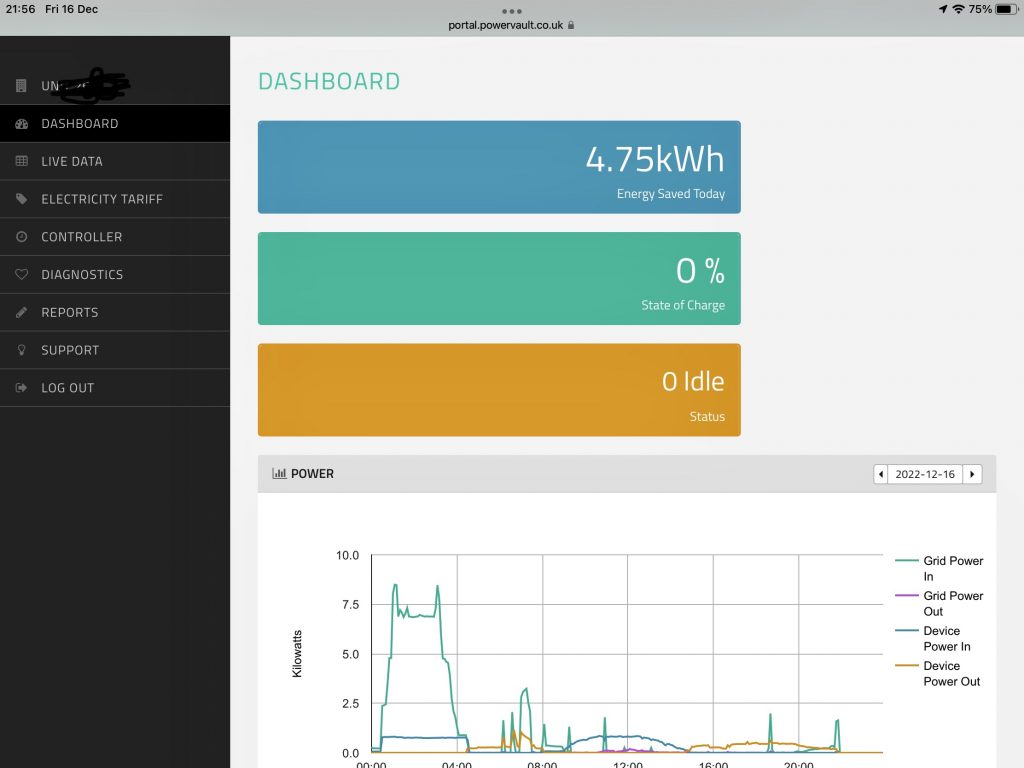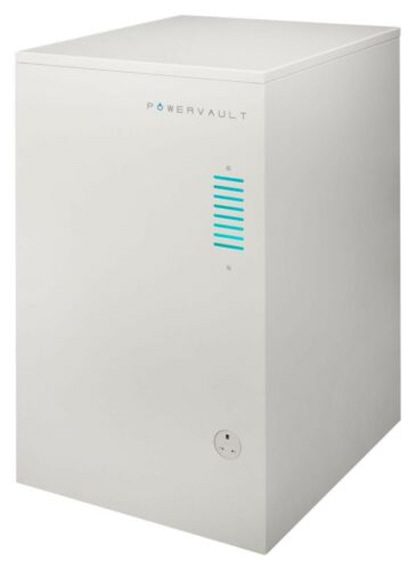Having recently spend around £600 replacing the internal batteries in my Powervault G200, I thought I’d look at the economics of that decision.
Originally I bought the Powervault to store the surplus electricity from my solar panels and then use that electricity later instead of buying electricity. I don’t receive any revenue for exporting electricity so to fill my battery from my solar surplus costs me nothing. I currently pay 35 p/kWh for daytime electricity. So, if I fill my battery from my solar surplus then I save 4 kWh (the capacity of the battery) x 35 p/kWh = £1.40 per day.
More recently I also charge the battery on cheap overnight electricity when there won’t be enough solar to charge the system fully.
I only get four hours of cheap power which isn’t enough to fully charge the battery. The battery charges at 0.8 kW so in four hours would use 4 hours x 0.8 kW = 3.2 kWh which at 7.5 p/kWh costs 24 pence. The system has a cycle efficiency of 80% so 3.2 kWh in gives 3.2 kWh x 0.8 = 2.56 kWh out. 2.56 kWh energy out is worth 2.56 kWh x 35 p/kWh = 89.6 pence. Having spend 24 pence to save 89.6 pence then I’ve made net savings of 65.6 pence per day.

A day like that shown in the portal with 4.75 kWh in savings is a bonus in terms of annual savings although it may accelerate the deterioration of the battery as it’s been double-dipped during the day with both overnight and solar charging.
If I assume that half the time the system is filled by solar and half from the grid then my annual savings are 0.5 x (£1.40 + £0.656) x 365 = £375.22. Having spent £600 on the new batteries then my payback time is £600 / £375.22/year = 1.6 years. The previous batteries lasted for 6 years although the new batteries were relatively cheap and might not be expected to last for so long. However even if the new batteries only have half the life of the prior ones then that still seems like an attractive investment.
My total investment in the battery storage is now £2600 – £2000 to buy it six years ago plus the £600 just spent on new batteries. That’s a payback of about seven years with expectation that the new batteries will extend the life of the system to nine years.

